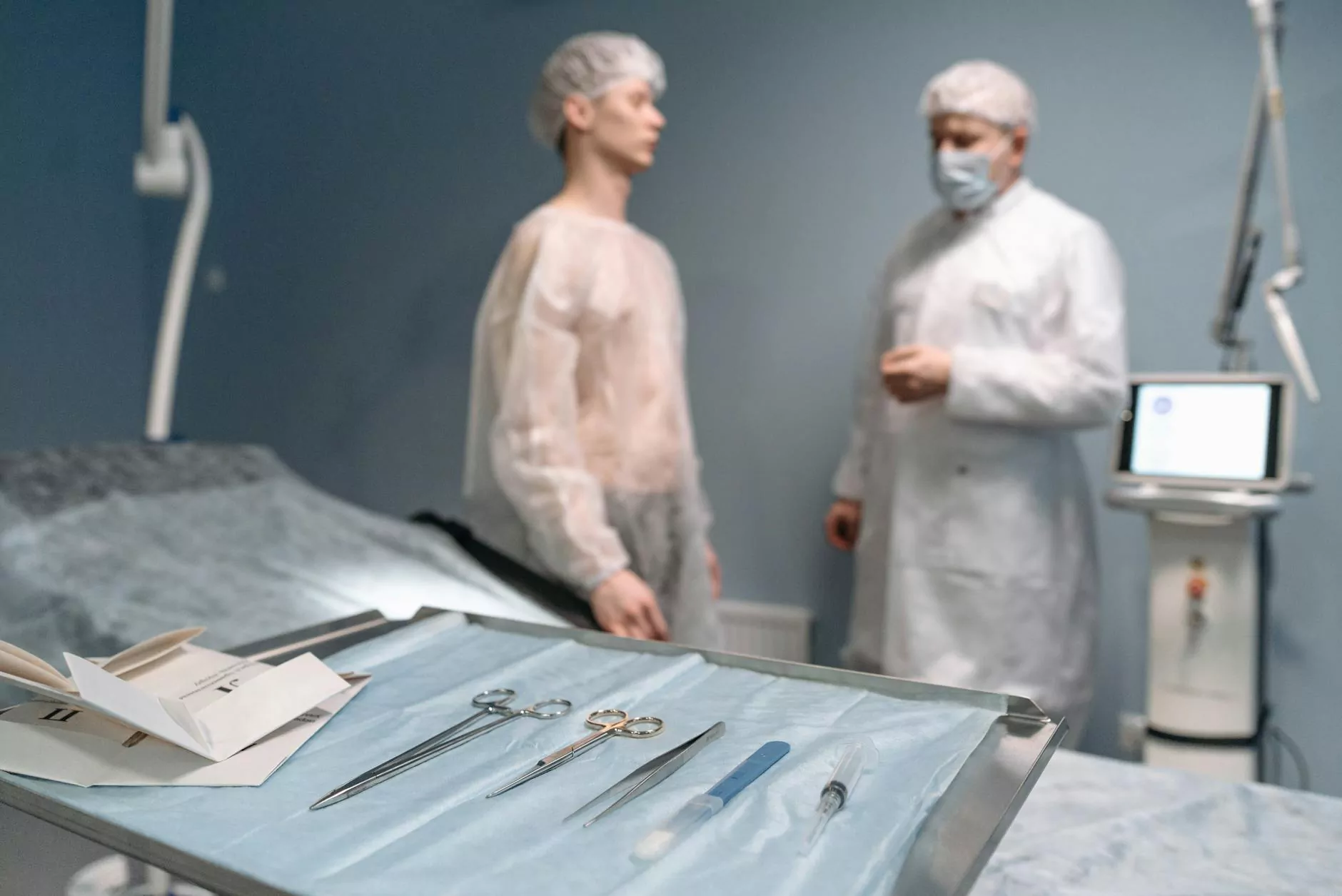Understanding the Role of a Thoracic Surgeon in Health and Medical Care

In the realm of health and medical care, the role of a thoracic surgeon is invaluable. These specialists focus on conditions involving the thoracic cavity, which includes the heart, lungs, esophagus, and chest wall. Their expertise is paramount in diagnosing, treating, and managing various diseases, particularly those that require surgical intervention.
What is a Thoracic Surgeon?
A thoracic surgeon is a physician who specializes in surgical procedures involving the organs and tissues within the chest. Their training encompasses a deep understanding of both general surgery and surgical techniques specifically tailored to thoracic diseases. This includes intricate procedures on the lungs and heart, as well as esophageal surgeries and chest wall reconstructions.
Educational Pathway and Training
The journey to becoming a thoracic surgeon is rigorous and challenging. It typically involves several stages:
- Undergraduate Education: A bachelor's degree in a relevant field.
- Medical School: Completion of a medical degree (MD or DO).
- Residency Training: After medical school, prospective surgeons undergo a general surgery residency, lasting 5 years.
- Fellowship Training: Following their residency, they partake in a specialized thoracic surgery fellowship, which typically lasts 2-3 years.
Conditions Treated by Thoracic Surgeons
Thoracic surgeons are trained to handle a variety of conditions, including:
- Lung cancer - surgical resection of tumors.
- Heart conditions - including coronary artery bypass grafting (CABG) and valvular repairs.
- Esophageal disorders - such as achalasia and esophageal cancer.
- Chest trauma - addressing injuries that affect the thoracic organs.
- Pulmonary diseases - including emphysema and pulmonary nodules.
The Importance of Collaborative Care
In the modern medical landscape, collaboration between healthcare specialists is vital. A thoracic surgeon often works closely with:
- Oncologists - for cancer patients.
- Pulmonologists - for respiratory diseases.
- Cardiologists - for heart conditions.
- Physical therapists - to aid recovery post-surgery.
The Role of Physical Therapy in Recovery
After thoracic surgery, physical therapy plays a crucial role in the recovery process. Patients may experience pain and reduced mobility, and physical therapists are essential in guiding rehabilitation. They provide tailored exercises and training to help regain strength and endurance.
Advancements in Thoracic Surgery
With advancements in technology, thoracic surgery has evolved dramatically. Innovations such as minimally invasive techniques, robotic-assisted surgeries, and improved imaging technologies have enhanced surgical precision and reduced recovery times. These developments ensure patients receive the highest level of care with fewer complications.
Minimally Invasive Techniques
Minimally invasive surgery, including video-assisted thoracoscopic surgery (VATS), enables surgeons to perform complex procedures through smaller incisions. Benefits of this approach include:
- Reduced postoperative pain
- Shorter hospital stays
- Faster return to daily activities
The Interplay of Sports Medicine and Thoracic Surgery
Interestingly, sports medicine can intersect with thoracic surgery, especially for athletes experiencing thoracic injuries. Conditions like rib fractures, lung contusions, or thoracic outlet syndrome may require surgical intervention. In such cases, sports medicine specialists collaborate with thoracic surgeons to ensure a comprehensive rehabilitation plan, enabling athletes to return to their physical activities as safely and swiftly as possible.
Rehabilitation after Thoracic Surgery
Post-surgical rehabilitation is critical for patients. It often includes:
- Breathing exercises - to improve lung function.
- Strength training - to regain physical strength.
- Cardiovascular workouts - to enhance endurance and overall fitness.
Patient Experience and Expectations
Understanding what to expect can significantly ease patient anxiety regarding surgery. Before undergoing a procedure, patients should:
- Engage in open discussions with their thoracic surgeon about the surgery and recovery process.
- Understand the risks and benefits associated with the chosen procedure.
- Follow pre-operative instructions, such as fasting or medication adjustments.
Choosing the Right Thoracic Surgeon
Selecting a qualified thoracic surgeon can be a transformative decision for your health. Factors to consider include:
- Board Certification - Ensure the surgeon is certified by relevant surgical boards.
- Experience - Inquire about the surgeon's experience with specific procedures.
- Patient Reviews - Research feedback from previous patients to gauge satisfaction and outcomes.
Conclusion
The role of a thoracic surgeon is fundamental in the landscape of health and medical care, addressing complex conditions within the chest and ensuring positive patient outcomes. Their collaborative work with other healthcare professionals, including those in sports medicine and physical therapy, underscores the holistic approach needed for effective healthcare delivery. As advancements in surgical techniques and technologies continue to emerge, patients can look forward to safer, more effective treatment options tailored to their needs.
For more information about thoracic surgery and health services, visit Hello Physio.









